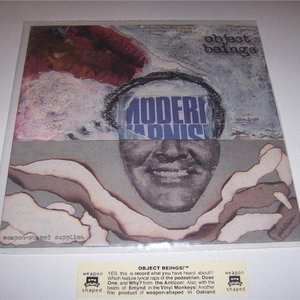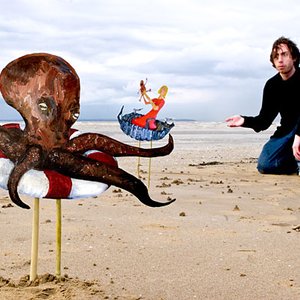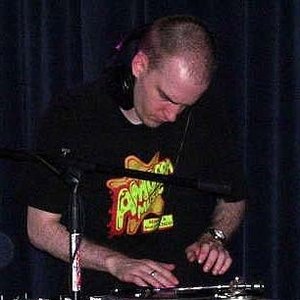Biography
Rapper Serengeti and producer Polyphonic are Illinois natives with three very distinct upbringings. While Polyphonic, born Will Freyman, was raised amongst corn fields and college kids in bucolic Champaign, David Cohn (Serengeti) experienced two separate childhoods within the city of Chicago: with his mother—a secretary, atheist, and devout communist—on the then all-black South Side; and with his father—a stressed, middle-class business-owner—in the then all-white suburbs of Olympia Fields. Though David is the great nephew of Sonny Cohn (Count Basie’s trumpeter of thirty years), music wasn’t passed down freely in the family. Instead, while Will (Polyphonic) was taking classical piano lessons at his dad’s behest, David was passing out copies of Socialist Worker at May Day rallies. Young Serengeti kept his musical obsessions in his head, and by the time he was ready to loose them, his skull had accumulated several album’s worth of left-field hip-hop detritus.
Ironically, it was Will who played jazz trombone throughout middle and high school. He’d nurtured a healthy love for Bach, Beethoven and Mahler as a child, composed his first electronic beat at 15 (reflecting a burgeoning taste for Warp Records and contemporary rap), and gone on to start his own 12-piece hip-hop big band. After attending college in his hometown—studying English, computer science and mathematics—he moved from San Francisco to New York City and back to S.F. before settling in Wicker Park, only a handful of blocks away from Serengeti, who he hadn’t yet met. ’Geti himself had ventured into break-dancing at a young age, and penned a few raps at 16 inspired by De La Soul and KMD, but it wasn’t until he studied abroad in Japan that he returned to Chicago ready to record. He’d also decided that college, where he’d majored in history, was only slowing him down.
Serengeti has since released ten albums in seven years. He made his first two nearly by accident, on the way to completing his “debut,” Gasoline Rainbows. That triptych created a hefty rumble in the underground, showcasing stylish, heady raps intertwined with thick threads of soul, pop, rock and psychedelia. With 2006’s Dennehy—a character-hopping concept album loaded with Chicago signposts and sports references—Geti established himself as some sort of missing link between Kool Keith and Common Sense, minus their respective batshit irreverence and self-seriousness. Since, he’s been following a stream of consciousness through the darker corners of society and his psyche over an increasingly adventurous musical trajectory. Last year, Serengeti debuted two new projects: Yoome, an intimate electronic collaboration with a New Zealand chanteuse, and Friday Night, an exercise in deconstructed party rap with emcee Hi-Fidel.
Meanwhile, after producing for a handful of others, Polyphonic made his solo debut in 2006 with Abstract Data Ark, an exceptional mélange of experimental electronics and tight rhythms procured from unknown sources. A year later, he founded the Juba Dance blues-rap experiment, and by the time he was introduced to Geti at a party, their mutual reputations in genre-crushing preceded them. A fortuitous collaboration ensued, and in 2007, Serengeti and Polyphonic released Don’t Give Up. The lush music—equal turns intricate and glitchy, expansive and dub-wise—was the near-perfect complement to the bleak verbiage, delivered in both rhyme and free-floating sing-song. In 2009, after being signed to anticon. by Adam “doseone” Drucker (Subtle, themselves, 13& God) the duo returns with Terradactyl, an album which finds two high-flying beasts delivering an assured and artful undie-rap classic.
Artist descriptions on Last.fm are editable by everyone. Feel free to contribute!
All user-contributed text on this page is available under the Creative Commons Attribution-ShareAlike License; additional terms may apply.












